Although they cover over 70% of our planet, only 0.6% of the world oceans are protected. It is estimated that we only know about 1 in 10 species in the ocean, which is unsurprising given that 90% of the ocean is more than half a mile deep and still remains largely unexplored. How might technology help us discover, understand and protect the vulnerable ecosystems below the waterline?
Marine Conservation is a fast-growing group in the WILDLABS community, capturing a wide variety of tech expertise within its member base, including those working with bioacoustic gear and hydrophones, AUVs and drones, sensors, machine learning, and more. By bringing together WILDLABS members from so many areas of conservation tech, the Marine Conservation group is the perfect place to collaborate on big, complex issues like marine biodiversity monitoring, coral reef health, plastic pollution, and sustainability.
The Marine Conservation group forum is also your place to chat about and solve the challenges unique to using conservation technology in marine environments. Whether you're struggling with deep-sea connectivity or salt water impacting gear longevity, or looking for remote solutions for long-term reef monitoring or biologging data collection, this group wants to help you explore the possibilities!
Check out some of the key marine conservation tech resources, conversations, and virtual events from across the WILDLABS platform:
Tutorials and Talks to Watch on Demand:
- Virtual Meetups: Developing cost-effective, open-source marine megafauna tracking, Jake Levenson
- Tech Tutors: How do I use open source remote sensing data to monitor fishing?, Max Schofield
- Virtual Meetups: eDNA for Aquatic Biodiversity, Alice Valentini
Case Studies, Tools, Research, and News:
- Southern Right Whales & Genome and Satellite Technology, Emma Carroll | eDNA & genomics, satellite data, biodiversity monitoring, climate change
- Building Experts Into AI, Whale Seeker | Machine learning, marine conservation, AI ethics
- Using AIS Data to Investigate the World’s Fishing Ports, Max Schofield | Remote sensing, data visualisation, fishing monitoring
- Small-scale fisheries and tech resources, Dan Steadman | Fishery monitoring, webinars, best practices
- Press Release: BAS Giant Iceberg Mission, British Antarctic Survey | Climate change, AUVs, remote sensing
- Case Study: Thermal imaging, drones, and loggerhead sea turtles, Megan Ossmann | FLIR, Duo Pro R camera, drones
- eDNA sampling to detect invasive snails in shipping ballast water, Gavin Shelton | Invasive species, eDNA, shipping
- Sustainable Fishing Challenges: Fish Catch Monitoring, Dan Steadman | Biologging, sensors, fishing monitoring
Conversations and Questions:
- Satellite tags for marine turtle recommendations | Alasdair Davies
- Calling all hydrophone users! | Team Open Acoustic Devices
- How difficult is it to build a buoy and constrain it in place? | Lindy Knowles
- Methods to detect Derelict Fishing Gear | Nandini Mehrotra
- Drone Mapping for Algal Blooms? | Harold Tay
- Minimising habitat impact of trawling gear | Dan Steadman
- Estimating carbon from 3d models of mangroves | Mark Brown
- Can we detect gillnets in turbid water? | Aurélie Shapiro
- New low cost DIY temperature loggers for reef monitoring | Harold Tay
- Machine learning to detect fish bomb blasts | Jamie Macaulay
Header Image: Emma Vogel
Technologist, birder, photographer and mountain guide.
- 0 Resources
- 0 Discussions
- 18 Groups
- @carlybatist
- | she/her
Science Outreach Lead-Rainforest Connection (RFCx) & ArbimonEcoacoustics, biodiversity monitoring, primates, lemurs



- 69 Resources
- 281 Discussions
- 18 Groups
- @vandita_shukla
- | she/her
PhD candidate studying drone flight planning for enabling tracking and identification of individual characteristics of wildlife; member of the WildDrone, an MSCA Doctoral Network funded by the European Union’s Horizon Europe research
- 0 Resources
- 0 Discussions
- 20 Groups
Movement Ecologist studying the where, why, and how animals move throughout our world. Current work is investigating the movement and energetics of large neotropical bats in a changing environment with ephemeral resources.



- 0 Resources
- 23 Discussions
- 22 Groups
- @amykukulya
- | she/her
Amy Kukulya is an ocean tech innovator and conservationist from the US. She has captured thrilling footage of megafauna using novel biologger and oceanrobotCams—SharkCam, TurtleCam featured across the globe on mainstream media outlets.
- 0 Resources
- 0 Discussions
- 7 Groups
- @TheDataEnthusiastic
- | He/Him
Hi, I'm pursuing Master's in Data Science. And I want work help protect nature and wildlife.
- 0 Resources
- 0 Discussions
- 14 Groups
I'm a computer engineer with a master's degree in Artificial Intelligence, I love nature and wildlife
- 0 Resources
- 4 Discussions
- 2 Groups
Program Officer, Conservation Technology Program, WCS
- 0 Resources
- 0 Discussions
- 3 Groups
- @claudlacroix
- | she/her
PhD fellow using deep learning to investigate marine fish acoustic signals and social behaviour.
- 0 Resources
- 0 Discussions
- 4 Groups
- @aleontiou
- | she/her

- 0 Resources
- 10 Discussions
- 7 Groups
- @roxirisa
- | roxi
Biologist I consider myself a data scientist with a passion for nature and with an extensive experience in species distribution modeling, handling large data sets from different sources such as gbif, eBird, xeno-canto, Worldclim, Terraclimate, ocean color e NASA among others. But
- 0 Resources
- 0 Discussions
- 9 Groups
Freaklabs
I'm an engineer and product designer working on wildlife conservation technology.



- 0 Resources
- 271 Discussions
- 13 Groups
ZSL is looking for an enthusiastic research scientist to join the multidisciplinary team and help deliver a project in Wales to better understand the ecology of tope sharks (Galeus galeus) in North Cardigan Bay and the...
9 April 2024
WWF is looking for consultant(s) with expertise in spatial data mapping and analysis.
19 March 2024
Hussey Labs seeks a senior post-doctoral researcher/senior research associate for movement ecology of Greenland halibut in the context of fisheries management across Baffin Bay-Davis Strait, Eastern Canadian Arctic.
13 March 2024
Whether you’re an aspiring or established entrepreneur, an early-stage startup, or a researcher, apply to the Project 71 – A Venture Competition for Ocean Regeneration. This competition is for you if you have a bold...
4 March 2024
Join the mission to help tackle IUU fishing with cutting-edge tech! The Allan Institute for AI is seeking a Senior Software Engineer to accelerate efforts to make sure those working to restore our ocean have the tools...
21 February 2024
SEE Shell is an innovative phone app that uses machine learning to identify products made from the shell of the critically endangered hawksbill sea turtle.
14 December 2023
Using baited remote underwater videos (BRUVs) to survey seagrass habitats along Kenya’s North Coast
30 November 2023
The Department of Applied Ocean Physics and Engineering (AOPE) at the Woods Hole Oceanographic Institution (WHOI) seek to hire 1-2 scientists at any of the Assistant/Associate/Senior Scientist levels to develop research...
27 November 2023
TagRanger® is a state-of-the-art wildlife finding, monitoring and tracking solution for research, conservation and environmental professionals. With superior configurability for logging data, reporting location and...
23 November 2023
Prospective PhD students with a background in acoustics and an interest in Arctic ecology are encouraged to email Michelle EH Fournet
16 November 2023
Engaging in seagrass conservation research along the Kenyan coast with dynamic approaches that integrate the skills I gained from the WiCT Training as part of my Master’s (by thesis) in Zoology program at Stellenbosch...
14 November 2023
We're delighted to announce that Connected Conservation Foundation and Airbus Foundation have today launched round 2 of the ‘Satellites for Biodiversity Award’.
2 October 2023
May 2024
June 2024
October 2024
March 2024
event
February 2024
December 2023
| Description | Activity | Replies | Groups | Updated |
|---|---|---|---|---|
| Hello @CourtneyShuert If I am not mistaken, Wildlife Computers was developing or has developed a remote release package for such an application as has a much smaller company... |
|
Biologging, Marine Conservation | 8 hours 41 minutes ago | |
| Congrats @MattyD797 and team!!! We do a lot of work in the underwater bioacoustic realm and your tool certainly seems like it would be a great instrumental addition to the... |
|
Acoustics, Build Your Own Data Logger Community, Marine Conservation, Protected Area Management Tools, Sustainable Fishing Challenges | 1 week 5 days ago | |
| We could always use more contributors in open source projects. In most open source companies Red Hat, Anaconda, Red Hat and Mozilla, people often ended up getting hired largely... |
|
Acoustics, AI for Conservation, Conservation Tech Training and Education, Early Career, Marine Conservation | 3 weeks 4 days ago | |
| Hello everyone, I'm interested in gathering insights on how the behavior of different species impacts the development and efficacy of... |
|
Biologging, Acoustics, Camera Traps, eDNA & Genomics, Emerging Tech, Marine Conservation | 3 weeks 6 days ago | |
| Hi all, I am searching for marine species projects that monitor orientation/IMU and/or acceleration data... |
|
Biologging, Marine Conservation | 1 month ago | |
| Hi Scott, thanks so much for sharing your thoughts here! It would be great to learn more about this, would you be interested in finding a time to chat? Thanks! |
|
Marine Conservation, Sustainable Fishing Challenges, Wildlife Crime | 1 month 2 weeks ago | |
| Ah yes. I didn’t notice that. Indeed it’s “near infrared”, 850nm lighting. |
|
Camera Traps, Marine Conservation | 1 month 3 weeks ago | |
| Am working on similar AI challenge at the moment. Hoping to translate my workflow to wolves in future if needed. We all are little overstretched but it there is no pressing... |
|
Camera Traps, AI for Conservation, Build Your Own Data Logger Community, Data management and processing tools, Marine Conservation, Protected Area Management Tools, Remote Sensing & GIS | 2 months 3 weeks ago | |
| I dont have anything written up but I can tell what parts we used and how we tested.Its pretty straightforward, we used this M10 Enclosure Vent from Blue Robotics: Along with... |
|
Build Your Own Data Logger Community, Acoustics, Camera Traps, Climate Change, East Africa Community, Marine Conservation, Open Source Solutions, Protected Area Management Tools | 3 months ago | |
| Thanks Aude, very useful. Will reach out to them! |
|
Early Career, Acoustics, eDNA & Genomics, Marine Conservation, Protected Area Management Tools | 3 months 1 week ago | |
| Thank you for sharing! Super interesting, as we don't see many underwater stereo cameras! We also use Blue Robotics components in our projects and have found them reliable and... |
|
Sensors, Camera Traps, Marine Conservation | 3 months 3 weeks ago | |
| If you are considering an external microphone and a towed system, then you would also be in a position to consider a raspberry pi with an external microphone with sbts-aru.... |
|
Acoustics, AI for Conservation, Marine Conservation, Sustainable Fishing Challenges | 3 months 4 weeks ago |
Pinniped Time-lapse Camera Surveys in the Southern Chesapeake Bay and Eastern Shore 2019-2022
13 July 2023 2:46pm
WOPAM Day (World Oceans Passive Acoustic Monitoring Day)
12 July 2023 4:04pm
Request: Public datasets and models for marine videos (with fish looking fishy-ish)
12 July 2023 3:58pm
Project Spotlight: Monitoring tropical freshwater fish in Kakadu National Park with drones, underwater cameras and AI
12 July 2023 3:40pm
Need for statisticians in conservation?
6 July 2023 8:23pm
12 July 2023 2:59pm
Hi Lev,
We always need more hands in conservation, from whichever field! Engineering, computer science, AI/ML, ecology, environmental science, communications, statisticians, etc.
I would say that conservation tech is moving heavily towards deep learning for data processing/analysis just because of the sheer amount of data being generated now, so it's always helpful if you have experience in that. But we still need ecological modeling (species distribution models, occupancy models, accumulation curves, etc.) to translate processed data into actionable conservation insights! So experience here too is a plus.
If you'd like to get a better idea of the diversity of programs, people, and orgs in conservation tech as you navigate your journey, the Conservation Tech Directory may also be a helpful resource for you.
All the best,
Carly
Sustained Effort: Can We Improve the Sustainability of Marine Telemetry Tags?
 Alasdair Davies
Alasdair Davies
12 July 2023 9:30am
Making Waves: Open Hardware as a Solution to Scaling up Bycatch Mitigation
9 July 2023 12:14pm
pneumatic artificial muscle applications in conservation tech?
5 July 2023 6:59pm
Making Waves: Open Hardware as a Solution to Scaling up Bycatch Mitigation
2 July 2023 11:24am
The Wildlife Society Conference
19 June 2023 5:59am
Catch up with The Variety Hour: June 2023
16 June 2023 11:43am
FathomNet Workshop @CVPR 2023
15 June 2023 12:27pm
Fisheries Analyst (Pacific)
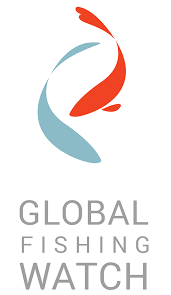 Global Fishing Watch
Global Fishing Watch
15 June 2023 12:15pm
Job Opening: Full Stack Developer at Marine Monitor (M2)
13 June 2023 6:47pm
Sofar increases battery life of montioring buoys with sleep setting
13 June 2023 12:08am
This article covers how Sofar's Spotter monitoring buoys can collect data for longer periods of time by improving battery life. According to this article, "GPS Sleep turns off Spotter’s GPS sensor during sampling dwell periods, increasing its battery life by at least 25% and significantly extending the duration of its deployment at high latitudes."
Celebrating World Oceans Day: Revitalizing the marine ecosystem with technology-driven engineered reefs to accelerate CO2 capture
9 June 2023 10:14am
As we celebrate World Oceans Day this month, we are reminded that addressing climate change will take more than any one organization. It will require companies, governments, NGOs and communities, all working together, with the aid of technology, to improve the efficiencies of our activities and operations and to reduce costs, waste and emissions. Such an example is IBM and The Reef Company recently joining forces signing a joint initiative agreement aimed at bolstering their ocean conservation endeavors.
UNEP Executive Director - Inger Andersen's take on why African nations have the power & tools to re-design a plastic pollution-free future
5 June 2023 1:28pm
Inger Andersen, the Executive Director of the UN Environment Programme (UNEP) explains how the innovative approaches towards curbing plastic pollution witnessed across African nations can help in pivoting to a plastics-free future through pioneering innovative manufacturing, packaging and design solutions.
This opinion first appeared in The Nation Africa
Register your #WorldEnvironmentDay Event or Activity and Share it with the World
5 June 2023 1:07pm
It's World Environment Day! This year the focus is on solutions to plastic pollution under the campaign #BeatPlasticPollution.
How are you getting involved to solve plastic pollution using conservation technology?
Opportunity: Director of Digital, Data and Technology
2 June 2023 12:40am
Ashored Innovations: Hardware and Software for Sustainable Fishing
 Ashored Innovations
Ashored Innovations
1 June 2023 9:46pm
Data Visualization in Service of Coral Reefs in Micronesia
17 May 2023 8:53pm
Happywhale: AI-Powered Whale Identification
 Happywhale
Happywhale
16 May 2023 10:00am
Deadline Approaching: Conservation Tech Award
15 May 2023 10:21pm
Photo Quadrats, AI, and MERMAID: A Case Study from Mozambique
12 May 2023 3:44pm
Introducing the 2023 Conservation Tech Showcase
11 May 2023 5:06pm
Looking for an off-the-shelf saltwater switch
6 May 2023 6:05am
New Paper: Identification of fish sounds
5 May 2023 12:40am
Xavier Mouy recently shared this new bioacoustics paper on Twitter. This research focuses on identifying fish sounds in relation to specific species through the use of three underwater portable audio-video platforms. The proposed array designs successfully identified fish sounds, and this paper covers instructions for others working in marine bioacoustics who would like to apply these ideas to their own work.
[Recordings Now Available!) EarthRanger User Conference
27 April 2023 5:52am
Data Scientist (Geospatial), Global Fishing Watch
 Global Fishing Watch
Global Fishing Watch
19 April 2023 10:34am
HydroMoth GroupGets Campaign is Open
17 April 2023 8:44pm


















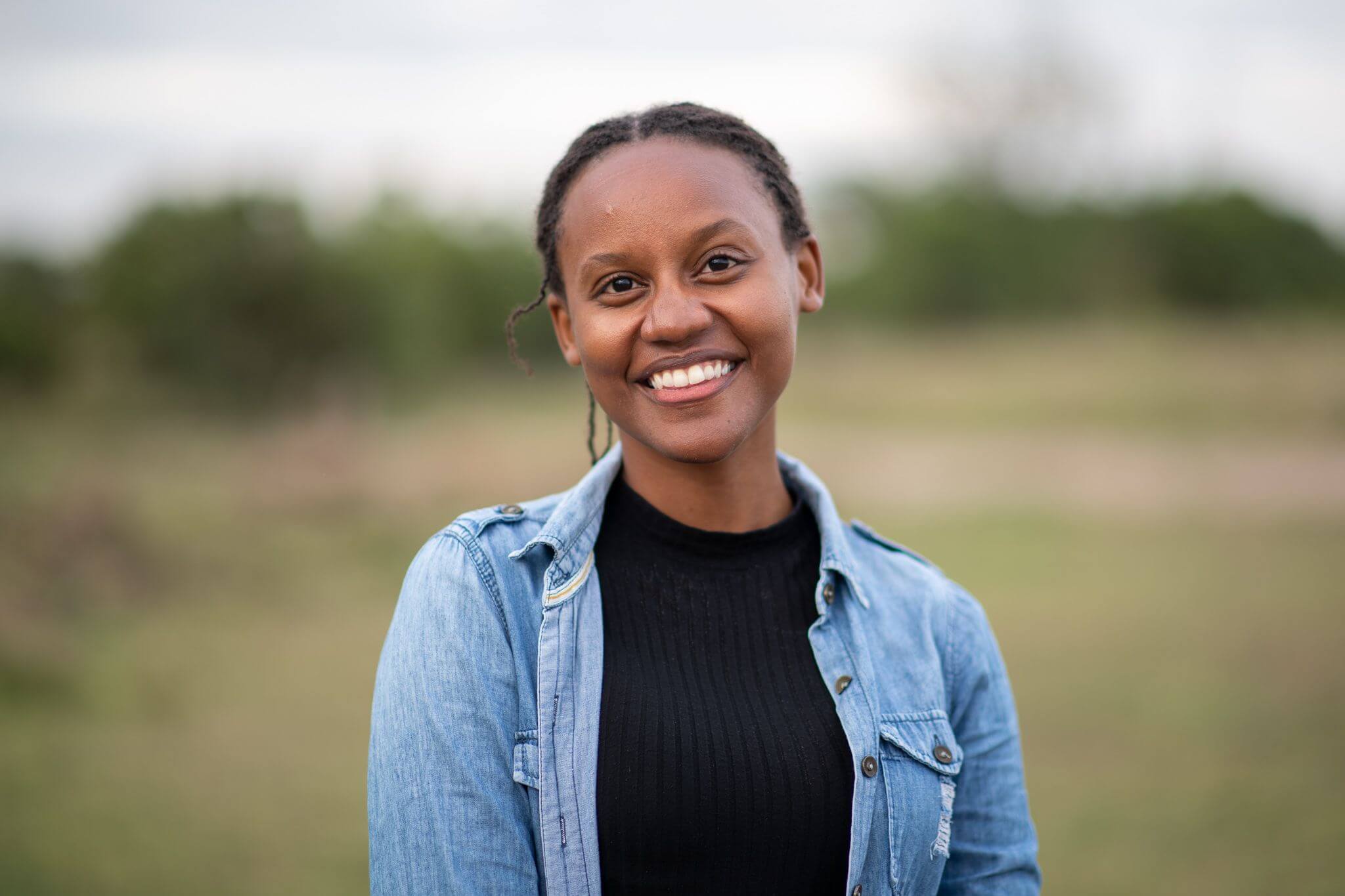




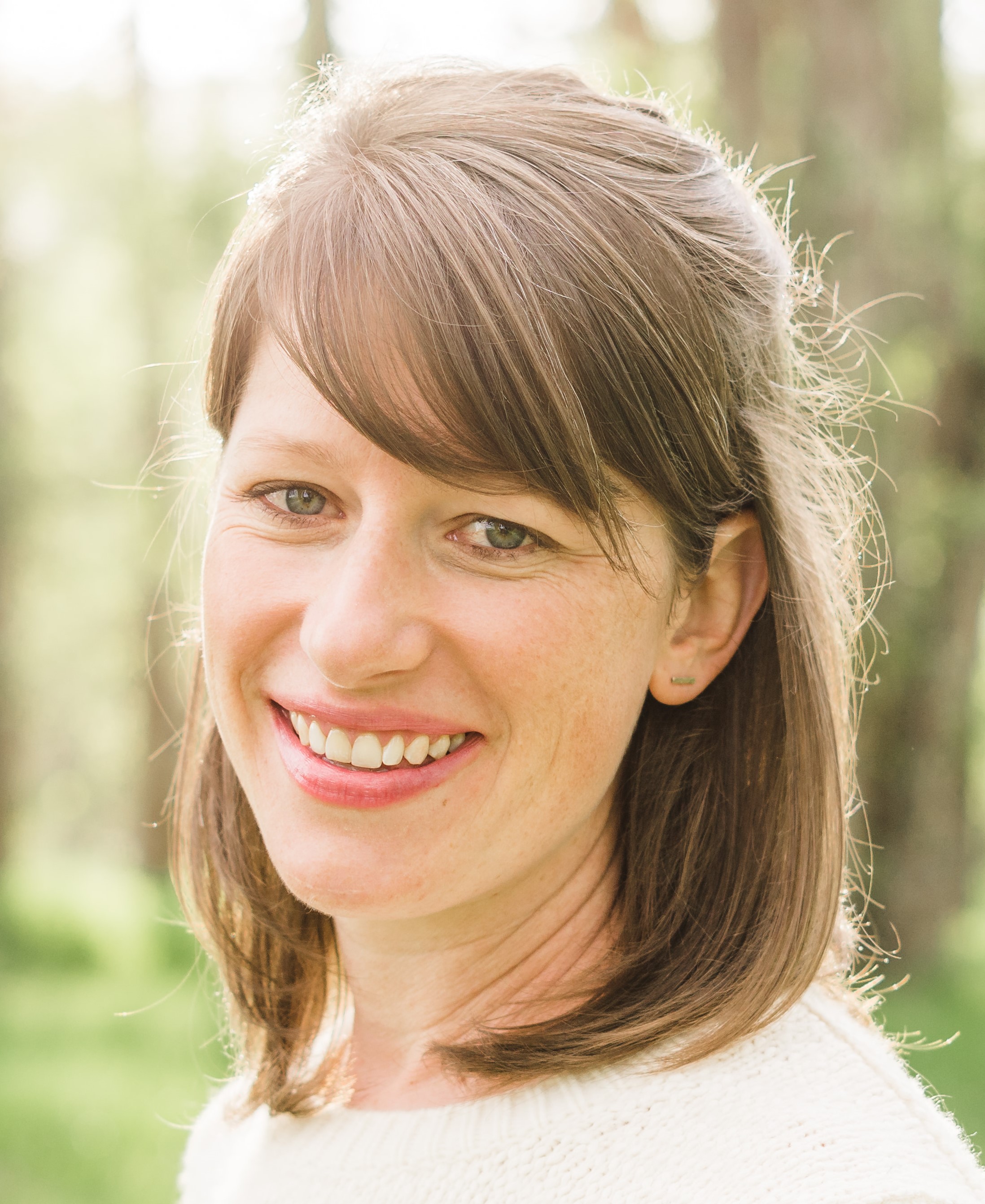


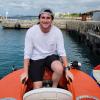

















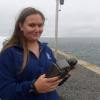



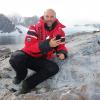






12 July 2023 3:58pm
During Andrew's talk, @dmorris put out a call in the chat that might be relevant to folks catching up on the video, so I'll drop it here too:
Re: Andrew's fish work... part of the reason I got in touch with Andrew a few weeks ago is that I'm trying to keep track of public datasets and public models for marine video that have basically this gestalt (video where fish look fishy-ish). I think we're getting close to enough public data to train a general-purpose model that will work well across ecosystems. My running list of datasets is here:
https://lila.science/otherdatasets#images-marine-fish
Let me know if folks know of others!
There are also a grand total of two public models that I'm aware of that sort of fall into this category... one is Andrew's:
https://github.com/ajansenn/KakaduFishAI
The other is:
https://github.com/warplab/megafishdetector
If folks know of other publicly-available models, let me know about those too!